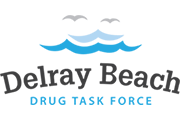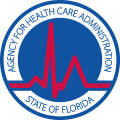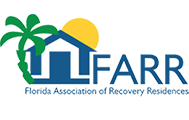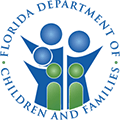Although many people associate addiction with drugs and alcohol, addiction is a complex illness that can involve more than just substances. Mayo Clinic and Cleveland Clinic note that some people struggle with compulsive behaviors they have trouble controlling, such as continuing to try to win back gambling debt, playing computer games instead of going to work, or seeking out unhealthy intimate relationships.
Known as process addictions, these concerns can disrupt a person’s life much like a substance use disorder can. Those who are living with a process addiction, such as gambling disorder, gaming addiction, or sex/love addiction, find it difficult to manage the urge to engage in these behaviors even if they’ve suffered negative outcomes.
People who struggle with process addictions may feel powerless to stop their actions and might hide their behaviors or isolate themselves from their loved ones. They may also stop taking care of themselves, going to work, or managing their daily responsibilities so that they can spend more time taking part in the activity associated with a specific process addiction.
Fortunately, process addictions are treatable concerns. By getting professional care for gambling disorder, gaming addiction, or sex/love addiction, it’s possible to learn to manage the symptoms of a process addiction and regain control of an illness that has kept you from living the life you deserve.
Signs & Symptoms of Process Addictions
The types of process addictions and their symptoms vary, and each person has a different experience with these conditions. However, there are certain behaviors that may indicate that someone is struggling with a process addiction.
Here are some common signs and symptoms of process addictions:
- Can’t stop thinking about the behavior and continually plans for the next experience
- Restless or irritable when unable to engage in the behavior or when attempting to stop the behavior
- Engages in the behavior to alleviate feelings of distress or a negative mood
- Needs to engage in the behavior more often or for longer periods to achieve the desired effect
- Unable to stop the behavior after repeated attempts
- Has lied to loved ones to hide the behavior
- Has put work or significant relationships at risk because of the behavior
Process Addictions Causes & Risk Factors
There is no single cause of process addictions, but experts note that there are certain risk factors that can increase a person’s likelihood for developing gambling disorder, gaming addiction, or sex/love addiction.
Potential causes of and risk factors for gambling disorder include:
- Gambling in childhood or early adolescence
- Family history of gambling disorder
Potential causes of and risk factors for gaming addiction include:
- Availability of a computer with internet connection
- Being an adolescent male
Potential causes of and risk factors for sex/love addiction:
- History of physical or sexual abuse
- Access to sexual images and information
These causes and risk factors may apply to all process addictions:
- Family history of substance use disorders
- Personal history of addiction
- Personal history of other mental health concerns
The Effects of Process Addictions
The effects of process addictions can vary significantly depending on individual factors in a person’s life, such as how long they’ve lived with the condition, whether they’ve sought treatment before, and if they’re struggling with any other medical concerns. Potential effects of process addictions may include:
- Decreased self-esteem
- Feelings of shame and guilt
- Substandard job performance or job loss
- Financial struggles or bankruptcy
- Inability to develop healthy relationships
- Damaged relationships with loved ones
- Trouble with the law or incarceration
- Increased risk of a substance use disorder
- Increased risk of other mental health disorders
The compulsions associated with process addictions can have a devastating impact on a person’s life. But when a person who is struggling with a process addiction receives care that is appropriate for their needs, they can make positive changes that lead to a healthier, more satisfying life.
Therapies Used in Process Addiction Treatment
At Wellness Resource Center, our expert team develops a personalized plan of care for each client based on a detailed intake assessment. Depending on their specific needs, a client’s process addiction treatment might include:
- Group, individual, and family therapies
- Various experiential therapies
- Medication management services
- Motivational interviewing
- Dialectical behavior therapy (DBT)
- Cognitive behavioral therapy (CBT)
- 12-Step programming
Every person heals from the effects of a process addiction at their own pace, so we determine each client’s length of stay based on their individual progress. We believe that it is essential for our clients to have the time and space they need to find recovery in the way that is most beneficial to them.
When a client is ready to transition out of our care, we provide them with a detailed discharge plan that connects them with any necessary resources and support services. This allows them to continue the progress they’ve made at Wellness Resource Center for years to come.
Why Choose Our Treatment Center for Process Addictions
Recognizing that it’s time to make a change is a major step toward improving your life. To achieve successful, lasting recovery from a process addiction, it’s important to find a center that truly understands how your struggles with a process addiction have impacted you.
Wellness Resource Center personalizes your care so that the therapies and services you receive address your specific challenges. You’ll work collaboratively with your care team throughout every stage of your recovery, helping you build your confidence and regain the sense of control you lost from living with a process addiction.
Our comprehensive range of programming allows us to meet you where you are in your recovery, providing you with flexible lengths of stay and the level of care you need to heal. At Wellness Resource Center, we empower you to learn to manage the thoughts and actions that once controlled your life, helping you rediscover hope for better days to come.












